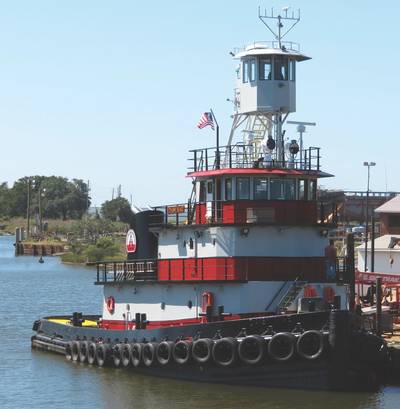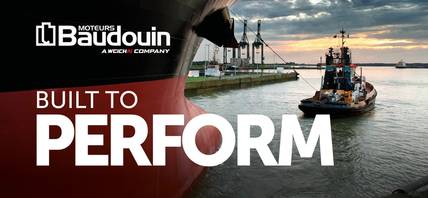Earlier this year I was part of a safety meeting with several marine towing companies and the topic turned to leadership on our towing vessels. Companies are coming to the realization that many of their captains are not masters of the vessels.
For years, the industry has taken control of the vessels from the captains and kept it in the office. I used to hear this lament from captains that I worked with in the nineties, “They don’t pay us to think.” And although the words have changed, the same old lament is there. Now before doing anything they must “check with the office.” As someone who owned a tug, this is an attitude that made me happy and scared all at the same time. You want to know what they are doing but you pay them to make the right decisions.
As the 2000’s wore on and our shortage of good captains led the industry to quickly promote people to the wheelhouse, we ended up with people running our vessels who didn’t know what to do in a lot of situations and who were happy enough to cede control to the office. In some places, experienced captains had moved ashore and could offer realistic advice. In many places, though, that wasn’t the case and we ended up with the blind leading the blind. There are companies that create the routes for the captains on their chart programs and they can’t deviate from them. What happened to navigation and leadership skills?
We Created a Problem and Sub M Will Require a Change.
Subchapter M will turn this model upside down. If you are using a TSMS, 46 CFR 138.220 (a)(1) states:
(iii) Master Authority. Each owner or managing operator must define the scope of the master’s authority. The master’s authority must provide for the ability to make final determinations on safe operations of the towing vessel. Specifically, it must provide the authority for the master to cease operation if an unsafe condition exists.
46 CFR 140.210 states:
(a) The safety of the towing vessel is the responsibility of the master and includes:
- Adherence to the provisions of the COI;
- Compliance with the applicable provisions of this subchapter;
- Compliance with the TSMS, if one is applicable to the vessel; and
- Supervision of all persons onboard in carrying out their assigned duties.
(b) If the master or officer in charge of a navigational watch believes it is unsafe for the vessel to proceed, that an operation endangers the vessel or crew, or that an unsafe condition exists, he or she must ensure that adequate corrective action is taken and must not proceed until it is safe to do so.
Now our captains will have the authority and responsibility to operate their vessels safely. Not that it wasn’t always the case, but now it’s in writing and there are penalties for not being a leader. The days of just being the boat operator are coming to an end and many of our people don’t seem to understand it.
So, what do we do? The larger companies are evaluating their wheelhouse personnel for leadership skills and if they find captains with some of these traits they are providing training to develop them into masters of their vessels. Those that cannot or will not become leaders are being let go.
What’s a Leader?
One of the better definitions I have come across is from Kristi Hedges, a leadership coach and author. “Being a leader means building followership. Your primary responsibility is how you can inspire those around you to support a larger agenda under your direction and vision. You have to prioritize communications and the development of others. Your job is no longer about what you can accomplish, but what your entire team can achieve. Good leaders focus on ‘we’ and not ‘me.’”
All of the good masters that I worked under and around understood that. The following is a list of traits that are important in a Master:
- Self-confidence – A good leader has little or no need for approval.
- Bold – Good leaders are practical, logical, to-the-point, aggressive and thick-skinned. They are outgoing and responsive to others, poised and comfortable with criticism.
- Conscientious – Leaders have a duty to do what is best, have self-discipline, value order and have a high standard of excellence. They don’t cut corners.
- Enthusiastic – Leaders are optimistic, active, expressive and energetic.
- Stable – A good leader is well-adjusted and can tolerate change, frustrations and stress without blowing his top.
- Controlled – The good leader is very careful in making decisions. He/she will take risks, but will assess them and adapt. But they are decisive. They are concerned about their reputation and integrity and will protect both.
- Dominating – Good leaders are Type A personalities. They are competitive and enjoy the challenges in their lives. They are assertive and have a lot of energy.
- Intuitive – They will trust their gut when making decisions. They know they don’t know everything but can use reason and logic along with their experiences to make the right decisions.
- Mature – The good leaders have developed personal and behavioral characteristics through growth. No tantrums in the wheelhouse when things don’t go as planned.
- Team Orientation – The leader believes in treating adults as adults. He/she fosters a cohesive team by treating each person with dignity and respect.
- Empathetic – A good leader builds trust through empathy. He/she can put himself in his deckhand’s shoes.
- Charisma – A good leader is charismatic. When I look back at the really good masters that I worked with they are all larger than life. They could captivate us. We knew they were the leader and they could motivate us.
The lack of leadership in small companies will be hard to overcome. Refining leadership skills will have to take place at the office first and that new way of doing business will have to be introduced and constantly reinforced with the crews. Many small companies grow out of a captain’s thoughts that with a tug or towboat, he can do it better than the place he is working for. But if you weren’t a leader on the boat, then you aren’t going to be one in the office. Go to your library or online and search for books on leadership. You’ll find thousands.
I am fortunate enough to work with some great Masters and crews and one of them is Mark Pearson, who toils on Coeymans Marine Towing’s Daisy Mae. He knows what he wants and knows how to do it. He is in charge and he backs it up with experience. Coeymans Marine Towing has just taken delivery of the Daisy Mae and he worked with his company and Rodriquez Shipyard to bring it all together. He isn’t just the boat operator; he’s the planner, decision-maker, task master and worker and that has earned the respect of his crew. He also knows how to communicate with the office to accomplish their shared goals.
Unfortunately, I see the opposite too often. Far too many of our wheelhouse personnel are in a position of leadership but do not have the requisite training and/or skills to be successful. If you have a captain that is unwilling to train the deckhands and mates to move up to master, then you have a problem. I have always felt that I should be training those under me to take my job. It’s best for them and the company and if I slip that much that they do take my position, then I deserved to lose it. So many good masters helped me get to where I am today and I owe it to those coming up to help them be all that they can be.
Looking Back, and Planning Ahead
The industry has promoted too many people that were not good at their deck jobs. Rather than moving people to the wheelhouse based on merit, they were brought up out of necessity. It’s almost impossible to tell the guy on deck how to do something when you aren’t sure yourself. This leads to frustration. Too often, I see wheelhouse personnel yelling at their crew and it’s because they can’t communicate what they want done. They don’t understand leadership and coaching. They are not earning respect. They slowly become hated by their crews. How will this captain be able to lead the crew through Sub M if he can’t explain how to tie the boat up?
If you own the towing vessels, take a long hard look at yourself and your organization and create the environment that allows leaders to thrive. If you are the captain, hone your leadership skills to become the Master. The list above is not all-encompassing, but it should serve you as a springboard to your future.
Embrace Sub M. It’s here to stay and it requires sound leadership. Are you in it for the long haul?
The Author
Pat Folan is a partner in Tug & Barge Solutions and has operated towing vessels from Maine to Corpus Christi, Texas, including the Alabama Rivers, Lower Mississippi, Great Lakes and Erie Canal. Tug & Barge Solutions exists to help companies and mariners adapt and then grow with Sub M.
(As published in the November 2017 edition of
Marine News)















